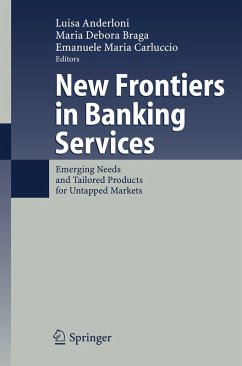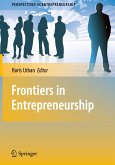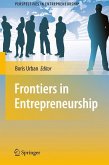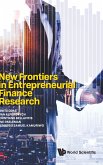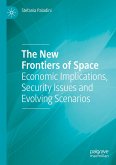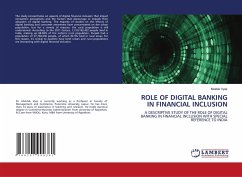The book is devoted to a subject which deserves growing attention from policy makers, financial operators and academics. It is the issue of unbanking or underbanking in developed countries. With respect to this, the goal of the authors has been to devote more efforts to understanding the problem of financial exclusion in order to offer to low-moderate-income people new opportunities of accessing financial services (banking, credit and investment services).
This book is devoted to an issue that is the subject of growing interest amongst policy makers, financial providers and academics. That issue is the problem of unbanking or underbanking in developed countries. The issue has arisen because, faced with an ever more sophisticated and efficient financial system, an increasing number of people have found themselves in danger of being excluded from it. The goal of the papers that follow is to draw attention, both through a theoretical framework and through field study, to the need for banks, financial institutions, public authorities and non profit associations to increase their efforts to understand the process of financial exclusion, so that they can develop approaches to help people on low to moderate incomes to gain access to the whole range of financial services, from payment to savings, and from loans to investment. Some farsighted banks and financial institutions have already developed strategies, and introduced new products andservices, to promote financial inclusion in these untapped markets. The research group is international and multi-disciplinary. The authors are grateful to the Italian Ministry for University Research (MIUR) for financial assistance provided under the "PRIN 2003" programme. The volume has been produced thanks to support from the University of Valle d'Aosta - Université de la Vallée d'Aoste (Italy), which has an leading reputation for encouraging research on financial innovation aimed at marginalised groups.
This book is devoted to an issue that is the subject of growing interest amongst policy makers, financial providers and academics. That issue is the problem of unbanking or underbanking in developed countries. The issue has arisen because, faced with an ever more sophisticated and efficient financial system, an increasing number of people have found themselves in danger of being excluded from it. The goal of the papers that follow is to draw attention, both through a theoretical framework and through field study, to the need for banks, financial institutions, public authorities and non profit associations to increase their efforts to understand the process of financial exclusion, so that they can develop approaches to help people on low to moderate incomes to gain access to the whole range of financial services, from payment to savings, and from loans to investment. Some farsighted banks and financial institutions have already developed strategies, and introduced new products andservices, to promote financial inclusion in these untapped markets. The research group is international and multi-disciplinary. The authors are grateful to the Italian Ministry for University Research (MIUR) for financial assistance provided under the "PRIN 2003" programme. The volume has been produced thanks to support from the University of Valle d'Aosta - Université de la Vallée d'Aoste (Italy), which has an leading reputation for encouraging research on financial innovation aimed at marginalised groups.

